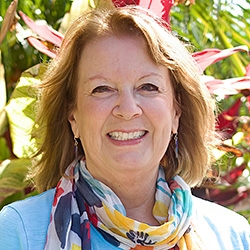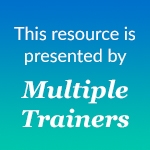

NVC Resources on Groups
-
According to this article, what we do before we move into the NVC dance profoundly influences the outcome and everyone involved. This "before" step increases the likelihood of living compassionately, and our support openness to outcome. It can also make our NVC practice less connecting, and more evaluative. The article addresses these points and talks about ways to move beyond the dead past, and the imagined future, to step into the the only “time and place” that both NVC operates and that the connection we so fervently want actually exists (ie. the present moment).
-
Building community well-being through bonds, bridges, and restorative relationships.
-
Trainer Tip: When we are authentic about who we are, and our preferences, we give everyone and ourselves a better opportunity to open up dialogue about how to meet our collective needs better. We simply express our truth, and in that way we value our own needs as much as those of others.
-
For many people, attempting to connect with others across differences can feel akin to walking through a minefield. With humility, tenderness, and courage, Roxy challenges your perspectives and encourages you to open your heart and mind. Roxy uses concrete examples and visual tools to illustrate complex concepts.
-
Some things may seem to take longer at first, but end up making things easier and faster. Other things seem easier or faster in the short term, but end up taking more time in the long run. This applies to projects, group agreements about process, relationships, addressing conflicts, clearing up misunderstandings, damage control, etc. It can be faster to slow down, be more present, and take the time since we care about the outcome.
-
How do we talk to ourselves and with others about polarizing topics in a way that's supportive? Seek to understand and be understood rather than press for agreement. Bring mindfulness into the conversation. Slow down and use structure to support everyone. Release knowing the solutions, answers or outcomes. Keep focus on shared universal needs. From this place we can say what's in our hearts and minds, and trust the process.
-
Listen to this newly remastered audio with seasoned Life Coach and CNVC Certified Trainers Martha Lasley and Dian Killian, to explore how you can "be the change" in your life, to live fully in integrity with your values in your work, community, faith and social action groups.
-
This telecourse recording provides an experience with the language, skills and consciousness of NVC applied to mediating all types of conflict whether you are one of the people in conflict or you are supporting others in conflict.
-
Join CNVC Certified Trainer Arnina Kashtan as explores interdependence, autonomy, valuing self and others, and power-sharing in your relationships. Free yourself to honor your longing for community, belonging, and love.
-
This Introduction to NVC Mediation provides a conceptual overview and experiential taste of the NVC mediation learning model developed by John Kinyon and Ike Lasater.

Quick Links
Subscription Preferences
Stay In Touch!
Looking for ways to keep up with NVC Academy news, get special offers, free resources, or words of inspiration? Here are five ways to stay engaged:










